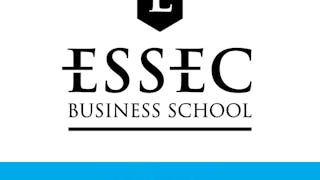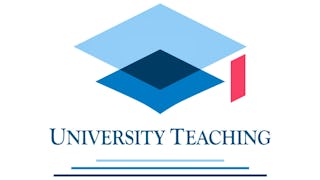- Browse
- Music Theory
Music Theory Courses
Music theory courses can help you learn chord progressions, scales, rhythm, and harmony. You can build skills in reading sheet music, analyzing compositions, and creating original pieces. Many courses introduce tools like notation software and digital audio workstations, that support composing and arranging music. You'll also explore concepts such as counterpoint, form, and orchestration, allowing you to apply your knowledge in various musical genres and styles.
Popular Music Theory Courses and Certifications
 Status: Free TrialFree TrialI
Status: Free TrialFree TrialIIE Business School
Skills you'll gain: Financial Policy, Public Policies, Economics, Economics, Policy, and Social Studies, Tax, International Finance, Policy Analysis, Crisis Management, Fiscal Management, Financial Systems, Supply And Demand, Financial Market
4.8·Rating, 4.8 out of 5 stars1K reviewsBeginner · Course · 1 - 3 Months
 Status: Free TrialFree TrialP
Status: Free TrialFree TrialPPeking University
Skills you'll gain: C (Programming Language), Programming Principles, Computer Science, Computer Architecture, Computer Programming, Theoretical Computer Science, Computer Hardware, File I/O, Computational Logic, Data Structures, Algorithms, Debugging, Emerging Technologies
4.8·Rating, 4.8 out of 5 stars1.7K reviewsMixed · Course · 3 - 6 Months
 Status: Free TrialFree TrialE
Status: Free TrialFree TrialEESSEC Business School
Skills you'll gain: Revenue Management, Forecasting, Budgeting, Hospitality, Financial Forecasting, Hotel Operations, Strategic Marketing, Target Market, Market Dynamics, Consumer Behaviour, Competitive Analysis, Data-Driven Decision-Making
4.6·Rating, 4.6 out of 5 stars1.1K reviewsMixed · Course · 1 - 4 Weeks
 Status: PreviewPreviewT
Status: PreviewPreviewTThe University of Hong Kong
Skills you'll gain: Instructional Design, Curriculum Development, Lesson Planning, Pedagogy, Teaching, Course Development, Instructional Strategies, Student Engagement, Higher Education, Learning Theory
4.8·Rating, 4.8 out of 5 stars1.7K reviewsBeginner · Course · 1 - 3 Months
 Status: Free TrialFree TrialU
Status: Free TrialFree TrialUUniversity of Pennsylvania
Skills you'll gain: Diversity Programs, Team Building, Diversity and Inclusion, Diversity Awareness, Team Management, Diversity Equity and Inclusion Initiatives, Goal Setting, Intercultural Competence, Emotional Intelligence, Team Leadership, Team Performance Management, Workplace inclusivity, Systems Thinking, Team Motivation, Presentations, Cognitive flexibility, Culture, Case Studies, Collaboration, Cultural Diversity
4.6·Rating, 4.6 out of 5 stars1.2K reviewsBeginner · Specialization · 3 - 6 Months
 Status: Free TrialFree TrialU
Status: Free TrialFree TrialUUniversity of Colorado Boulder
Skills you'll gain: Probability, Statistical Hypothesis Testing, Statistical Inference, Probability & Statistics, Probability Distribution, Statistical Methods, Statistics, Bayesian Statistics, Data Literacy, Sampling (Statistics), Applied Mathematics, Data Ethics, Data Analysis, Statistical Analysis, Quantitative Research, Data Science, Theoretical Computer Science, Sample Size Determination, Artificial Intelligence
Build toward a degree
4.4·Rating, 4.4 out of 5 stars343 reviewsIntermediate · Specialization · 3 - 6 Months
 Status: PreviewPreviewU
Status: PreviewPreviewUUniversity of Illinois Urbana-Champaign
Skills you'll gain: Instructional and Curriculum Design, Needs Assessment, Instructional Design, Learning Theory, Diversity and Inclusion, Training and Development, Education and Training, Curriculum Development, Analysis
4.1·Rating, 4.1 out of 5 stars843 reviewsMixed · Course · 1 - 3 Months
 Status: Free TrialFree TrialC
Status: Free TrialFree TrialCCalifornia Institute of the Arts
Skills you'll gain: Game Design, Video Game Development, Storytelling, Software Design Documents, Ideation, Storyboarding, Writing, Creativity
4.7·Rating, 4.7 out of 5 stars1.3K reviewsBeginner · Course · 1 - 4 Weeks
 Status: Free TrialFree TrialU
Status: Free TrialFree TrialUUniversity of Illinois Urbana-Champaign
Skills you'll gain: Balance Sheet, Revenue Recognition, Financial Accounting, Financial Reporting, Generally Accepted Accounting Principles (GAAP), Accounting, Income Statement, Financial Statements, Cash Flows, Accrual Accounting, International Financial Reporting Standards, Financial Analysis
Build toward a degree
4.8·Rating, 4.8 out of 5 stars725 reviewsIntermediate · Course · 1 - 3 Months
 Status: Free TrialFree TrialN
Status: Free TrialFree TrialNNew York University
Skills you'll gain: Supervised Learning, Model Evaluation, Applied Machine Learning, Machine Learning, Statistical Methods, Artificial Neural Networks, Predictive Modeling, Scikit Learn (Machine Learning Library), Regression Analysis, Deep Learning, Finance, Financial Market, Tensorflow, Logistic Regression, Jupyter, Reinforcement Learning
3.8·Rating, 3.8 out of 5 stars680 reviewsIntermediate · Course · 1 - 4 Weeks
 Status: Free TrialFree Trial
Status: Free TrialFree TrialSkills you'll gain: Crisis Management, Data Ethics, Governance, Business Ethics, Responsible AI, Media Relations, Strategic Thinking, Communication Strategies, Business Leadership, Accountability, Ethical Standards And Conduct, Emerging Technologies, Organizational Leadership, Public Relations, Operational Risk, Risk Management, Communication, Leadership, Learning Strategies, Test Planning
4.7·Rating, 4.7 out of 5 stars601 reviewsBeginner · Professional Certificate · 3 - 6 Months
 Status: Free TrialFree TrialM
Status: Free TrialFree TrialMMacquarie University
Skills you'll gain: Organizational Leadership, Team Leadership, Business Leadership, Leadership Development, Strategic Leadership, Leadership, Leadership and Management, Organizational Change, Adaptability, Staff Management, Empathy & Emotional Intelligence, Diversity and Inclusion, Communication
4.8·Rating, 4.8 out of 5 stars1K reviewsBeginner · Course · 1 - 3 Months
Searches related to music theory
In summary, here are 10 of our most popular music theory courses
- Understanding economic policymaking: IE Business School
- 计算导论与C语言基础: Peking University
- The Fundamentals of Revenue Management: The Cornerstone of Revenue Strategy: ESSEC Business School
- University Teaching: The University of Hong Kong
- Culture-Driven Team Building: University of Pennsylvania
- Data Science Foundations: Statistical Inference: University of Colorado Boulder
- Instructional Design Foundations and Applications: University of Illinois Urbana-Champaign
- Story and Narrative Development for Video Games: California Institute of the Arts
- Accounting Analysis I: The Role of Accounting as an Information System: University of Illinois Urbana-Champaign
- Guided Tour of Machine Learning in Finance: New York University










